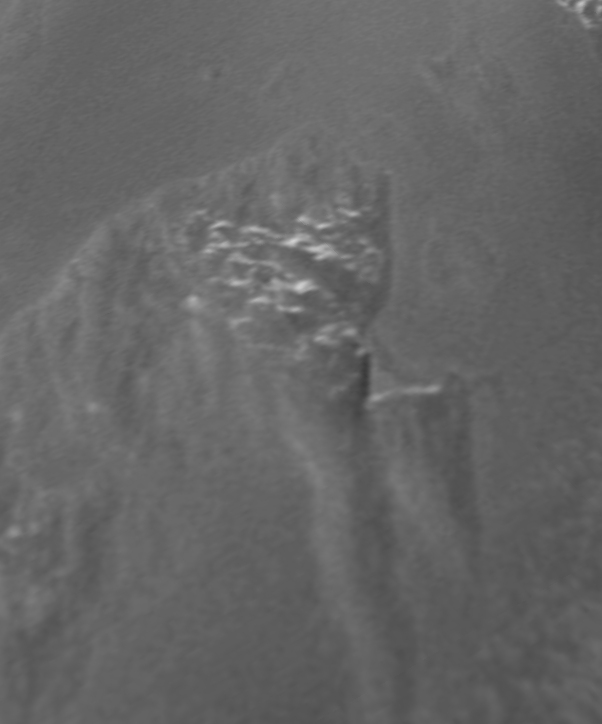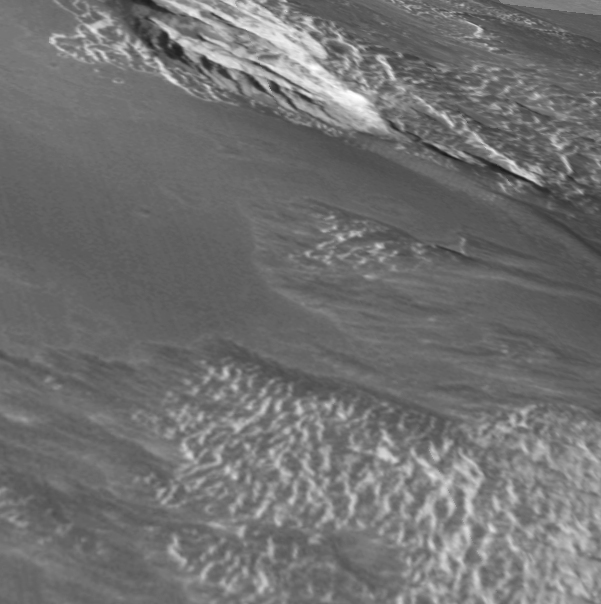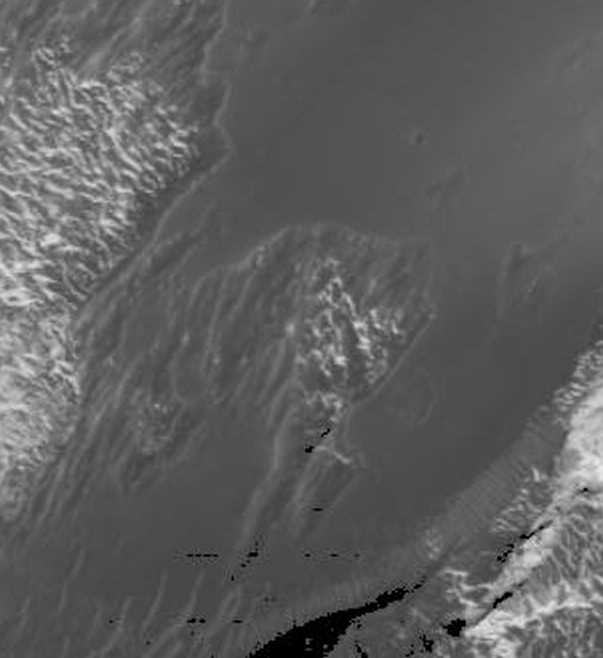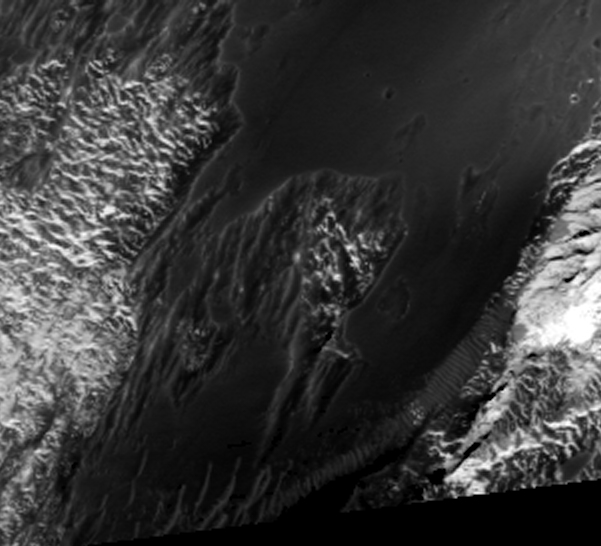It looks like you're using an Ad Blocker.
Please white-list or disable AboveTopSecret.com in your ad-blocking tool.
Thank you.
Some features of ATS will be disabled while you continue to use an ad-blocker.
share:
wildespace
A question for you and Arken: why turn logic on its head? One minute you use scientific discoveries and proposals to support your view, the very next minute you disregard science as a "butterfly" thing, where everything is fleeting and nothing can be trusted. Where is logic in that?
What the hell bro? Now Arken and I are on the same bowling team? Well, I do enjoy his Mars threads.
Where have I mentioned it a "butterfly" thing? You cranky guys will make an issue when there is not even one.
So calm down, We are having a nice discussion about possibilities, so grab some wood there bub. Are you that bored over there on your little island?
Why do you call the proposition that only simple organisms could ever evolve on Mars "nonsense"
Cause until it is scientifically proven, it's just that, nonsense. See what I just did there?
while favouring the complex life proposal, if there's no direct evidence for either,
Probably because I am hoping that is the case, but certainly far from sure. Besides, I can favor whatever the hell I choose to.
and geological evidence shows Mars lost its magnetosphere billions of years ago?
LMAO! Ok then, now we have some real nonsense. Look, While I respect what Scientists have done for mankind, you guys throw around billions and billions of years so frequently concerning your theories that it has become comical.
You got no way in hell of differentiating a billion years, from another billion years. Know what I call it? = Dart board scientific theories my friend. Nothing but dart board science. So smoke that with your next cup of tea. ~$heopleNation
edit on 19-2-2014 by SheopleNation because:
TypO
reply to post by SheopleNation
Actually, there is a method to the madness.
As yourself this: How long does it take for 6.4185×10^23 kg (the mass of Mars) to cool off from molten rock to form a solid crust?
How long does it take to generate an atmosphere? One with enough pressure to keep water in liquid form?
Now, with a liquid core acting as a dynamo, how long does the magnetic field stay strong enough for a planet that size to maintain a healthy magnetosphere? That would depend upon the core cooling more and more, until it can no longer act as a dynamo.....and then have a very week to non-existent magnetosphere.
How long does that take?
Then, ask: how long does it take for the solar wind from the sun to begin striping away that atmosphere? To the point where it is now only 0.63 kPa ?
Many of these things are basic to advanced physics. So they can be calculated, and answers can be found.
Of course you can't say: This is how it happened and this is fact. Mainly because we don't have enough physical evidence on hand to have tested and verified through peer review.
So much of it remains as theories. However they are good theories that have been investigated and worked on by scientist for decades.
Some times theories get thrown out because they have too many questions that a new theory provides answers for. Sometimes it's because new evidence comes to light that shows the theory is wrong, or better yet, leads to more questions being asked.
Anyone can believe what they want. If it gives someone a warm fuzzy feeling to believe in something, why not then? Have at it. Everyone should have that warm fuzzy feeling.
Actually, there is a method to the madness.
As yourself this: How long does it take for 6.4185×10^23 kg (the mass of Mars) to cool off from molten rock to form a solid crust?
How long does it take to generate an atmosphere? One with enough pressure to keep water in liquid form?
Now, with a liquid core acting as a dynamo, how long does the magnetic field stay strong enough for a planet that size to maintain a healthy magnetosphere? That would depend upon the core cooling more and more, until it can no longer act as a dynamo.....and then have a very week to non-existent magnetosphere.
How long does that take?
Then, ask: how long does it take for the solar wind from the sun to begin striping away that atmosphere? To the point where it is now only 0.63 kPa ?
Many of these things are basic to advanced physics. So they can be calculated, and answers can be found.
Of course you can't say: This is how it happened and this is fact. Mainly because we don't have enough physical evidence on hand to have tested and verified through peer review.
So much of it remains as theories. However they are good theories that have been investigated and worked on by scientist for decades.
Some times theories get thrown out because they have too many questions that a new theory provides answers for. Sometimes it's because new evidence comes to light that shows the theory is wrong, or better yet, leads to more questions being asked.
Anyone can believe what they want. If it gives someone a warm fuzzy feeling to believe in something, why not then? Have at it. Everyone should have that warm fuzzy feeling.
reply to post by Soylent Green Is People
Hi SGP,
There was no anger on my behalf, maybe my words looked angry "so to speak" but it was definately not the intention.
I was actually just answering to one person in particular and at the same time sending out a message to the posters that I know darned well always come onto Arken threads and give him a hard time.
Sincerest apologies to those who thought I was being a bit stroppy.
Kindest respects
Rodinus
Hi SGP,
There was no anger on my behalf, maybe my words looked angry "so to speak" but it was definately not the intention.
I was actually just answering to one person in particular and at the same time sending out a message to the posters that I know darned well always come onto Arken threads and give him a hard time.
Sincerest apologies to those who thought I was being a bit stroppy.
Kindest respects
Rodinus
reply to post by Soylent Green Is People -
wildespace-eriktheawful
Thanks for your balanced posts and comments
Before this thread derail in a nonsense fight club, I want to be clear on what is my opinion on Mars and how astrobiologists, scientists and researchers spill informations on what really was happened or happen to the RED planet, right now.
It is still a Mistery.
One for all: METHANE!
An Huge amount of METHANE that seasonally fill the atmosphere of Mars.
This means that we must leave open all (ALL) the possibilities... even complex life in presence af Oceans of water.
Thanks for your balanced posts and comments
Before this thread derail in a nonsense fight club, I want to be clear on what is my opinion on Mars and how astrobiologists, scientists and researchers spill informations on what really was happened or happen to the RED planet, right now.
It is still a Mistery.
One for all: METHANE!
An Huge amount of METHANE that seasonally fill the atmosphere of Mars.
This means that we must leave open all (ALL) the possibilities... even complex life in presence af Oceans of water.
edit on 20-2-2014 by Arken because: (no reason given)
erik & Soylent Green Is People, I really respect what the two of you contribute here on ATS. You both also have an approach that makes it easy to
discuss these issues. I enjoy talking about these things with you both
wildespace? You already should realize by now how much I respect you, and your photo cosmic images that you present here so well. You and I discussed them before, remember? No hard feelings if you and I bump heads every now and then.
I love Arken's threads and posts, just so that is clear.
Listen, If we all sometimes disagree, it is no big deal at the end of the day. I come here to ATS for many different reasons, but you guys are a big part of that reason. Tomorrow is another day. ~$heopleNation
wildespace? You already should realize by now how much I respect you, and your photo cosmic images that you present here so well. You and I discussed them before, remember? No hard feelings if you and I bump heads every now and then.
I love Arken's threads and posts, just so that is clear.
Listen, If we all sometimes disagree, it is no big deal at the end of the day. I come here to ATS for many different reasons, but you guys are a big part of that reason. Tomorrow is another day. ~$heopleNation
SheopleNation
erik & Soylent Green Is People, I really respect what the two of you contribute here on ATS. You both also have an approach that makes it easy to discuss these issues. I enjoy talking about these things with you both
wildespace? You already should realize by now how much I respect you, and your photo cosmic images that you present here so well. You and I discussed them before, remember? No hard feelings if you and I bump heads every now and then.
I love Arken's threads and posts, just so that is clear.
Listen, If we all sometimes disagree, it is no big deal at the end of the day. I come here to ATS for many different reasons, but you guys are a big part of that reason. Tomorrow is another day. ~$heopleNation
Agreed.
reply to post by Arken
Methane was in fact believed to be a important clue to thinking biologicals may exist because of how life here produces it.
Unfortunately, the more we learned about the geology of Mars, the less methane becomes evidence of life there:
Methane Production:
Serpentinization doesn't PROVE that the methane is non-biological......but then it means that the presence of methane does not PROVE life either.
So the mind set of if there is methane, it must mean life is there, unfortunately doesn't help anymore since we know that Mars has olivine, CO2 and water.
Best way to find out would be to actually go there.
Methane was in fact believed to be a important clue to thinking biologicals may exist because of how life here produces it.
Unfortunately, the more we learned about the geology of Mars, the less methane becomes evidence of life there:
Methane Production:
Methane could also be produced by a non-biological process called serpentinization involving water, carbon dioxide, and the mineral olivine, which is known to be common on Mars
Serpentinization doesn't PROVE that the methane is non-biological......but then it means that the presence of methane does not PROVE life either.
So the mind set of if there is methane, it must mean life is there, unfortunately doesn't help anymore since we know that Mars has olivine, CO2 and water.
Best way to find out would be to actually go there.
edit on 20-2-2014 by eriktheawful because: (no reason given)
reply to post by SheopleNation
Thanks.
I find Arken's threads interesting too, even if I may or may not agree with him.
He is bringing content here to ATS for us to discuss and that is a good thing......even if it's over rocks...(sorry...HAD to say it, hehehehe).
He has a very bright imagination and a passion for finding things to show us. And even when people disagree with him, he does try to discuss it.
I think ATS would be a very boring place if people posted something and we all simply sat around nodding our heads agreeing to everything.
And English isn't Arken's first language, so I have to give him another big pat on the back.
Thanks.
I find Arken's threads interesting too, even if I may or may not agree with him.
He is bringing content here to ATS for us to discuss and that is a good thing......even if it's over rocks...(sorry...HAD to say it, hehehehe).
He has a very bright imagination and a passion for finding things to show us. And even when people disagree with him, he does try to discuss it.
I think ATS would be a very boring place if people posted something and we all simply sat around nodding our heads agreeing to everything.
And English isn't Arken's first language, so I have to give him another big pat on the back.
wildespace
Interesting hypothesis. One thing I wonder, was Mars red back then, or did the redness develop later on, when the planet dried up? The artist's interpretation may need to include more grey than red.
It needs to be noted that even if there was plentiful water on Mars, it doesn't imply Earth-like appearance with forests and grasslands. Life on Mars might have never had a chance to evolve beyond simple microorganisms, or to evolve at all.
en.wikipedia.org...
www.space.com...
Mars is red due to the oxidation of the rock and dust. If there was an ocean on Mars millions of years ago, then the extreme solar radiation would have blown off the atmosphere, then the oceans would have evaporated, and the molecules of H2O would have split up into hydrogen and oxygen. The hydrogen moves up to the top of the atmosphere and the oxygen oxides the rock.
Red color martian rock it iron oxide... oxygen was then
edit on 20/2/14 by mangust69 because: (no reason given)
reply to post by tencap77
Here's a link that proves there WAS Life on Mars. So if this is criminal misuse of funds, then obviously we have different morals. Not sure if the Life was indicative to the Planet, or if it came from else where, but it was there. This is a long documentary where Carl Sagan and other Scientists spend 2 hours explaining how these forms, seen on a flyover pic of Mars, cannot be natural formations. They even use 3D modeling of their day to show a bit clearer what we see in the pic. A city, with a power plant, factory of sorts, town hall or some huge gathering hall, 200 foot tall statue, etc. Slow but very informative. Watch if you can, is well worth the time. There was a thread on this here at ATS years ago, but the links to the vid are broken. This one works. If not, let me know and I'll repost. Thanx for reading, Later, Syx.
oops, forgot the link : www.ufo-blogger.com...
Here's a link that proves there WAS Life on Mars. So if this is criminal misuse of funds, then obviously we have different morals. Not sure if the Life was indicative to the Planet, or if it came from else where, but it was there. This is a long documentary where Carl Sagan and other Scientists spend 2 hours explaining how these forms, seen on a flyover pic of Mars, cannot be natural formations. They even use 3D modeling of their day to show a bit clearer what we see in the pic. A city, with a power plant, factory of sorts, town hall or some huge gathering hall, 200 foot tall statue, etc. Slow but very informative. Watch if you can, is well worth the time. There was a thread on this here at ATS years ago, but the links to the vid are broken. This one works. If not, let me know and I'll repost. Thanx for reading, Later, Syx.
oops, forgot the link : www.ufo-blogger.com...
edit on 20-2-2014 by SyxDaliGee because:
(no reason given)
reply to post by SyxDaliGee
Before I watch the whole video: where on Mars is this base supposedly located? Can you give rough coordinates? There may be some hi-rez MRO images of that area, which would allow us to confirm or disprove these claims. Even MRO's global Context Camera coverage should provide good resolution to spot large artificial structures.
[Edit] Found the image strip mentioned in the video at several sites:
viewer.mars.asu.edu...
ida.wr.usgs.gov...
www.msss.com...
High-quality, full-size image: www.msss.com...
Can't see anything artificial there. Will post with more investigation.
Before I watch the whole video: where on Mars is this base supposedly located? Can you give rough coordinates? There may be some hi-rez MRO images of that area, which would allow us to confirm or disprove these claims. Even MRO's global Context Camera coverage should provide good resolution to spot large artificial structures.
[Edit] Found the image strip mentioned in the video at several sites:
viewer.mars.asu.edu...
ida.wr.usgs.gov...
www.msss.com...
High-quality, full-size image: www.msss.com...
Can't see anything artificial there. Will post with more investigation.
edit on 20-2-2014 by wildespace because: (no reason given)
reply to post by wildespace
Gods that video is excruciatingly slow and boring... despite the possibly astounding subject matter.
Either way I found the coordinates and would love some higher resolution pics posted to see if it's a legit curiosity or wishful thinking and blurred natural geography ...
It's in the Tithonoum Chasma (far West portion) at 4.96 South , 89.62 West ... and the strip of film from the Martian Surveyor is labelled M20204304.
And once again, the pace of that thing could burst a blood vessel or ten...
EDIT: and see you found it already... sigh, that's 5 minutes I'll never have again... but thanks! Oh, looking at the posted pics and that doesn't really pin-point the area... it's on the bottom of the chasm in a very specific spot... so if anyone could find and enlarge that would be dandy.
Gods that video is excruciatingly slow and boring... despite the possibly astounding subject matter.
Either way I found the coordinates and would love some higher resolution pics posted to see if it's a legit curiosity or wishful thinking and blurred natural geography ...
It's in the Tithonoum Chasma (far West portion) at 4.96 South , 89.62 West ... and the strip of film from the Martian Surveyor is labelled M20204304.
And once again, the pace of that thing could burst a blood vessel or ten...
EDIT: and see you found it already... sigh, that's 5 minutes I'll never have again... but thanks! Oh, looking at the posted pics and that doesn't really pin-point the area... it's on the bottom of the chasm in a very specific spot... so if anyone could find and enlarge that would be dandy.
edit on 2/20/2014 by Baddogma because: (no reason given)
edit on 2/20/2014 by Baddogma because: (no reason given)
Baddogma
wishful thinking and blurred natural geography ...
That.
It totally looks like a natural formation, perhaps a series of landslides / sand slides / slumped terrain. It is located on a rather steep slope:
(Google Earth, using CTX Mosaic overlay)


Another angle, showing that there are similar natural features nearby:

And finally, two versions of the Global Mars Surveyor image mentioned in the video (enlaged x2 and rotated to show the slope going down)


Do you see any city, factories, roads, or other artificial structures there?
reply to post by wildespace
Well, I don't... though there are a few straight lines and blocks... but if I squint really hard for ten minutes and take a chem or three I could probably see the Taj Mahal.
One of the best anomalies I remember seeing is that white, trailer-tank looking doo-dad in the Southern Hemisphere... but I have no idea if it's been debunked yet.
There is just too much to keep in one's head, sometimes... but there are a few that make me wonder... I just wish I remembered exactly where I saw them.
Either way, thank you very much for finding that and posting... I'm sure I speak for the silent majority, too.
Edit add: And to reiterate, the last two pics could vaguely hold the shapes that video spoke of... but the details are lacking for anything even termed "possible."
Well, I don't... though there are a few straight lines and blocks... but if I squint really hard for ten minutes and take a chem or three I could probably see the Taj Mahal.
One of the best anomalies I remember seeing is that white, trailer-tank looking doo-dad in the Southern Hemisphere... but I have no idea if it's been debunked yet.
There is just too much to keep in one's head, sometimes... but there are a few that make me wonder... I just wish I remembered exactly where I saw them.
Either way, thank you very much for finding that and posting... I'm sure I speak for the silent majority, too.
Edit add: And to reiterate, the last two pics could vaguely hold the shapes that video spoke of... but the details are lacking for anything even termed "possible."
edit on 2/20/2014 by Baddogma because: (no reason given)
I wonder if there was large amounts of water once , with all that Iron lying on the surface oxidizing. Could this have some kind of battery effect on
mars? I mean maybe that it could evaporate or damage the atmosphere by this reactions . Maybe mars could be electrified in some way?
I in my own informal opinion think that water on Mars, was the reason Mars once had a richer EM field. When Mars had a higher temperature due to the
fresher radioactivity levels, it maintained liquid water better. Through both photon absorption and satellite "stirring", it allowed for a denser,
more charged atmosphere.
The atmospheric loss began as the planet naturally cooled. The photon absorptive deep water bodies began to reflect when they froze. The land being covered in snow and with the heating blanket clouds dissipating, it further added to the problem. The oceans no longer would stand and fall for the satellites. The atmosphere now diminished in shielding and charge began to lose surface water though unprotected vaporization.
Millions of years later, after the loss of the acid scrubbing water cycles ended. The atmosphere is at where it is now, with most oxygen, hydrogen and nitrogen bonded in with the surface. Leaving the viewable examples of water, to long ago areas of temporary flows of ground melted water and possible ocean cavities.
Just the way I see it or I'd have links and quotes. If we keep progressing, in less than 50 years, I wont have to theorize. We'll all know and be able to pull up these 50 year old historical records kept by the NSA and laugh at us cavemen.
The atmospheric loss began as the planet naturally cooled. The photon absorptive deep water bodies began to reflect when they froze. The land being covered in snow and with the heating blanket clouds dissipating, it further added to the problem. The oceans no longer would stand and fall for the satellites. The atmosphere now diminished in shielding and charge began to lose surface water though unprotected vaporization.
Millions of years later, after the loss of the acid scrubbing water cycles ended. The atmosphere is at where it is now, with most oxygen, hydrogen and nitrogen bonded in with the surface. Leaving the viewable examples of water, to long ago areas of temporary flows of ground melted water and possible ocean cavities.
Just the way I see it or I'd have links and quotes. If we keep progressing, in less than 50 years, I wont have to theorize. We'll all know and be able to pull up these 50 year old historical records kept by the NSA and laugh at us cavemen.
People keep posting about Mars once having water as if it is some new revelation and NASA was caught lying. Can you show me where it was said Mars
NEVER had water?
Thecakeisalie
reply to post by weirdguy
I read somewhere that the red pigment is iron oxide. Perhaps Olympus Mons blew, that would certainly kill off a planet.
Olympus Mons is three times the height of Everest and would dwarf any super volcano found on earth, so yes it would most certainly be able to cause a mass extinction.
I wonder what the effect would be if, as in the artists depiction posted on page 1, Olympus Mons reached above the atmosphere, and what would be the effects if it erupted? With the eruption "taking place" outside the planets atmosphere. Maybe a lot of material was ejected out into space? But enough material might still en shroud the planet thus killing life? Could this be one possible origin for the asteroid belt? After many eruptions above the atmosphere? Could this be a cause of any Earth events in the distant past? Extinction Level Events? Or too far away you think?
It would be cool to be on Mars and witness an eruption like that...but only if all the material escapes mars orbit or burns up in the atmosphere as it returns...
Maybe it would be better to be in a spaceship orbiting hundreds, no, Thousands of meters, way out into deep space........With a telescope. Haha. I made a judgment of distance joke. Do you think Olympus Mons is taller than th- nevermind, nothings taller than the Statue Of Liberty. Trust me I've seen it. It's like, huge, man so, there's no way. I wonder why the word "statue" is in the name of The Statue Of Liberty. I mean, we KNOW it's a statue right? Shouldn't it just be called Liberty or something?. I dunno, do statues normally have names that include the word "statue"? Probably. I'm probably just weird.
new topics
-
Democrats send letter to Biden urging him to ratify Equal Rights Amendment
US Political Madness: 53 minutes ago
top topics
-
Reprehensible Behavior
US Political Madness: 12 hours ago, 10 flags -
This is adorable you guys!
General Chit Chat: 12 hours ago, 8 flags -
Defending the need for adherence to Old Testament commandments under the new covenant of Christ
Conspiracies in Religions: 13 hours ago, 5 flags -
Democrats send letter to Biden urging him to ratify Equal Rights Amendment
US Political Madness: 53 minutes ago, 0 flags
active topics
-
Democrats send letter to Biden urging him to ratify Equal Rights Amendment
US Political Madness • 1 • : Echo007 -
Light from Space Might Be Travelling Instantaneously
Space Exploration • 27 • : 777Vader -
Defending the need for adherence to Old Testament commandments under the new covenant of Christ
Conspiracies in Religions • 24 • : FullHeathen -
-@TH3WH17ERABB17- -Q- ---TIME TO SHOW THE WORLD--- -Part- --44--
Dissecting Disinformation • 3713 • : 777Vader -
Rant. I am sick of people saying the police are revenue raising.
Rant • 12 • : inflaymes69 -
Reprehensible Behavior
US Political Madness • 10 • : nugget1 -
George Stephanopoulos and ABC agree to pay $15 million to settle Trump defamation suit
Mainstream News • 24 • : WeMustCare -
Drones everywhere in New Jersey ---and Elsewhere Master Thread
Aliens and UFOs • 174 • : nugget1 -
The Mystery Drones and Government Lies --- Master Thread
Political Conspiracies • 106 • : cherokeetroy -
Statements of Intent from Incoming Trump Administration Members - 2025 to 2029.
2024 Elections • 45 • : WeMustCare
